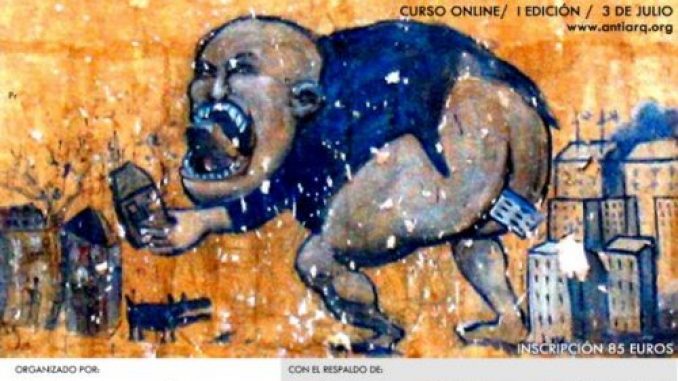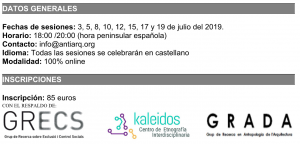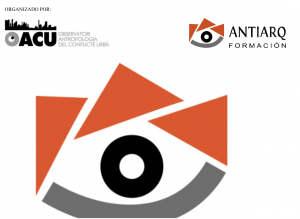
The association Formación Antiarq has been organizing online seminars on anthropology and architecture since several years. The classes are held by several members of three working groups of the University of Barcelona: Observatori d’Antropologia del Conflicte Urbà (OACU), Grup de Recerca sobre Antropologia del Conflicte Urbà (GRACU), and Grup de Recerca sobre Exclusió i Conflicte Social (GRECS) (The latter featuring even in Barcelona’s map of public transport! check it here).
The new seminar, Analytic keys of urban conflict in the neoliberal city will take place as usual as online sessions during the month of July 2019, and will address the contradictions between the neoliberal direction of most urban transformations, and the uses of the city that oppose or resist to them: the conflictual relationship between the city conceived by the power and the city lived by the people, as explains the intro to the seminar.
Far from considering this relationship as a problem on its own, the anthropologists that will share their ethnographic work and theoretical reflections in the seminar will show how the heart of social reproduction, the engine of political change, the wave of fresh water in the neoliberal pond, is precisely this element: urban conflict.
Here is the final program of the seminar! These are the sessions:
- July 3rd: Muna Makhlouff, “The ‘mega’ forms of urban neoliberism: events, projects, and constructions”
- July 5th: Martin Lundsteen, “Culturalization of social conflicts”
- July 7th: Stefano Portelli, “To inhabit is stronger than the metropolis: negotiating conflicts in a common space”
- July 10th: Joan Uribe, “Seguritization and control of public space”
- July 12th: Caterina Borelli, “Turistization of urban space”
- July 15th: Juliana Marcús, “Gentrification processes in a context of urban commodification”
- July 17th: Mauricio Chemas, “Informal work and urban conflict: the production of a space of subsistence”
- July 19th: Gabriel Navas, final debate, “The production of a de-conflictivized city”
- About the conflict between the metropolis and the forms of inhabiting, don’t miss this treasure (in spanish): Consejo nocturno, 2018, Un habitar más fuerte que la metrópoli, Pepitas de Calabaza, Logroño. PDF and link here.


